- Home
- Selena Kitt
Triad
Triad Read online
eXcessica publishing
Triad © July 2010 ed. Selena Kitt
All rights reserved under the International and Pan-American Copyright Conventions. No part of this book may be reproduced or transmitted in any form or by any means, electronic or mechanical, including photocopying, recording, or by any information storage and retrieval system, without permission in writing from the publisher.
This is a work of fiction. Names, places, characters and incidents are either the product of the author’s imagination or are used fictitiously, and any resemblance to any actual persons, living or dead, organizations, events or locales is entirely coincidental. All sexually active characters in this work are 18 years of age or older.
This book is for sale to ADULT AUDIENCES ONLY. It contains substantial sexually explicit scenes and graphic language which may be considered offensive by some readers. Please store your files where they cannot be access by minors.
Excessica LLC
P.O. Box 127
Alpena, MI 49707
To order additional copies of this book, contact:
[email protected]
www.excessica.com
Cover design © 2012 Alessia Brio
First Edition July 2010
Warning: the unauthorized reproduction or distribution of this copyrighted work is illegal. Criminal copyright infringement, including infringement without monetary gain, is investigated by the FBI and is punishable by up to 5 years in prison and a fine of $250,000.
Welcome to a MENAGErie of sex in this steamy offering from the authors at eXcessica! The characters in these stories have all learned their kindergarten lessons—they share very well with others! From two men sharing her, to two women sharing him, and even all three men sharing each other, there’s a plethora of sex in this hot anthology with a dozen stories to make your flesh-sandwich dreams come true!
Stories included by: Elliott Mabeuse, Emma Hillman, Giselle Renarde, Jack Osprey, Saskia Walker, Bekki Lynn, Selena Kitt, Darcy Sweet, Will Belegon, Dakota Trace, J.M. Snyder and Willson Rowe.
Triad
Selena Kitt, editor
Table of Contents
Crossroads by Elliott Mabeuse
I Am Nobody’s by Emma Hillman
Wife Sandwich by Giselle Renarde
Break Neck Hill by Jack Osprey
The Chocolatier by Saskia Walker
Jackie’s Boys by Bekki Lynn
I’ll Be Your Superman by Selena Kitt
Painted Into a Corner by Darcy Sweet
A Beautiful Friendship by Will Belegon
Dream Lovers by Dakota Trace
Threesome by J.M. Snyder
He Started It! by Willsin Rowe
CROSSROADS
By Elliott Mabeuse
The first time I saw Ellen Rothko was when I walked into Boyle's Antiques on Clark Street, looking for old records. She was showing a woman some antique earrings, their heads bent over the display case, and when she heard me come in, she looked up and caught my eye, shocked me with her beauty, and then lowered her face again, leaving me standing there gaping like an idiot.
She was simply one of the most beautiful women I've ever seen, with a model's adolescent angularity coupled with a woman's easy grace. She had a rich torrent of Tuscan-red hair and her clear brown eyes were framed by green glasses, probably intended to make her look older, but instead just emphasizing her youth. Only the intelligence in her eyes kept her beauty from being too easy and gratuitous. That intelligence took the form of an open and almost confrontational curiosity, as if she wanted to know right away what I could do for her.
When I came to know her better, I realized it wasn't a look she gave to everyone. I was someone special from the start.
I was on my usual rounds of the antique and second-hand stores, looking for old records, and I'd expected to deal with Morty Boyle, a man I knew fairly well and didn't much like—a greedy, avaricious dealer—so I was a bit surprised to find her there. I thought Morty must have hired some new help.
I walked in and made myself unobtrusive while she dealt with the woman, and when she was done, I looked up to find her regarding me with that look.
"Hi, is Morty here? I'm a friend of his."
She shook her head. She was wearing a dove-gray sweater, and her glasses were on a neck chain, a charming touch, as if she were trying hard to look older than she was.
"Mr. Boyle? No, he's not here anymore."
"So he finally sold out, huh? He'd been talking about that for years. You're the new owner?"
She nodded. "Me and my husband Eric. What can I do for you?"
I stuck out my hand. "I'm James Sawyer. I deal in old records—78's, 45's, some LP's, but generally the old stuff. The older, the better."
"Ellen Rothko." She took her glasses off and let them hang from the chain. I wondered if they were prescription or whether she just wore them for show. She took my hand and shook it.
I can't say there was any sort of shock that went through our hands, but there was something totally captivating about her eyes, and she regarded me as if she were trying to place my face.
I felt the same way. She was half my age, but there was this distinct feeling of having met her before, as if we already knew each other. I wondered whether she might have been a student in one of the classes I taught, back when I was teaching at the city college. That had been about seven or eight years ago, and she looked to be about the right age.
That feeling of recognition lasted only a moment, but it left me strangely shaken. Nothing reminds me of my age like meeting a former student, now all grown up.
"Are you selling or buying, Mr. Sawyer?" she asked. "Selling, I hope, because we really don't have any records. We just did a thorough inventory."
"Oh, buying, mostly. Morty used to take any old records he found and set them aside for me to go through. I know the market pretty well and pay top dollar. But if you get anyone looking for something special, you can let me know too. I can generally dig up most anything that's still available, and I'll split the profits with you. It's the rare stuff I'm really looking for, though"
"Well we deal mostly in furniture and hard goods, and Eric takes care of the collectables. Here he is now."
A young man came walking out of the back, wiping his hands on a rag. He was as handsome in his way as she was in hers, a perfect yuppie couple, but he had more of the predator in him, a sharp wariness. It didn't surprise me. Those are qualities you need to make a living in this business, which can get very cutthroat.
When Ellen introduced us and told him I was looking for old records, he brightened.
"Records? I'm not into that myself. But I come across them at house sales and things like that. What are you looking for? How much are they worth?"
I kind of played it down. I didn't want any competition. The vintage record business isn't what it used to be. Most of the old 78's have already been discovered, and my main business now was in old LP's and 45's, most of which I sold to Japanese collectors. Still, any fool could go online and find records that were fetching up to a thousand dollars a copy, and Eric was no fool. I could see him listening to my every word.
I knew what he was thinking. Vintage recordings is a specialty market, a business unto itself, and as with all collectables, you've either got to be an expert in the field or have an expert working with you if you ever want to make any money at it. Eric was thinking I could be his expert.
I didn't mind. After all, that's how I worked. I'd go into these old stores and shops and tell them what they had and appraise them, and if the stuff was really valuable, I could usually fix them up with an interested buyer and we'd split the profits. I was always perfectly honest. I did it for love of the old music, not the money.
"What sort of music is it?" Ellen asked.
/>
"Oh, I handle all sorts of stuff, but especially country blues, primitive stuff, music from the 20's and 30's. That's my own personal weakness—Blind Lemon, Petey Wheatstraw, Son House, Robert Johnson. I also handle early jazz and jug band, hillbilly. Twenties pop. There's a market for that stuff, if you know who to sell to."
"So you’re a collector yourself?" she asked.
I shrugged. I wasn't about to tell them what my collection was worth. "Yeah, some. That's how I got into it. I turned a hobby into a low-paying career, you might say."
She smiled and combed her hair back from her face, a fetchingly vain, slightly flirtatious gesture. I wasn't so old that I didn't appreciate the move. For some reason, she liked me, and I responded.
There are three kinds of people in collectables: those who do it for love, those who do it for money, and those who do it because they can't help it—the born collectors who have acquiring and dealing in their blood. Ellen was the first kind, Eric the last, with a good portion of the greedy part thrown in. He loved the money, but he loved the wheeling and dealing more. Everything was negotiable to him, and every transaction was some sort of deal, this for that.
As I said, I was really only in it because of my love of the blues, and once the talk turned from the money to the music itself, Eric lost interest and drifted off. Ellen seemed in no hurry for me to leave, though. Business was slow and talking to her was easy. She was a rapt listener and already knew a lot about rural America in the twenties and thirties and the popular music of the time. She had an attitude and imagination like mine, and I could tell that for her, the past still lived.
We talked about Tin Pan Alley and the pop music explosion that occurred in the teens and twenties, about the piano roll business, the development of early jazz and race records. I hadn't talked so much in ages and she hung on every word, and now and then I caught that look in her eye again, something deep and curious. Finally I had to go, afraid of overstaying my welcome and burning her out. She made me promise to come back and bring her some recordings. They already had some old record players capable of playing the old 78's, and she wanted to hear the music for herself. She asked me to teach her.
I kept my word, and their shop became my second home. I struck a deal with Eric: I'd put a box or two of records in his store and we'd split the profits three ways. Any records he came up with that I priced, the same deal, cutting Ellen in on it too. It was an overly generous offer, but at the time I wasn't really doing much business and I wasn’t much of a negotiator, so I let him set the terms. Besides, it gave me an excuse to hang around.
I didn't think of it as love at first. I was a lot older than her, and if anything, our relationship seemed more like a father-daughter affair, even though I knew age didn't matter to her. It was Eric who'd bring it up, subtly, without any rancor, but in a way that was supposed to remind us of our places. He knew something was going on, something he wasn't a part of.
Maybe it wouldn't have been so bad if I hadn't been sure that Ellen felt the same way about me. We connected so easily, and on a level that seemed to go way beyond what she felt for Eric, that I was sure she was aware of it. She took care of the books and the nuts and bolts of the business—the dreary stuff—and there were times when she'd be sharp with him. No matter how busy she was, though, whenever I came into the shop, she just broke out in that sweet smile and told me to help myself to some coffee, that she'd only be a minute.
There was something amazing about listening to music with her. We seemed to hear the exact same things in the old blues tunes. When we listened to Blind Lemon's understated despair on "See That My Grave Is Kept Clean" or Robert Johnson's "Hellhound On My Trail," she'd lower her face and fold her arms over her chest like she was cold, and I'd see the goose bumps rise on her skin. It was times like those when I just wanted to grab her in my arms, knowing she felt what I felt, knowing that someone else understood. She responded to the loneliness and emotion in these old recordings just as I did. She understood.
She became inextricably bound up in those records for me, and back in my apartment I'd lie on my sofa, deciding what I'd bring for her to listen to the next day, and trying to picture her reaction. I wasn't trying to seduce her or lure her away from Eric, but I was trying to pick records that would say to her things I couldn't say myself.
Maybe that was silly, but it wasn't all a one-way infatuation. There were signs. It hardly matters what they were—they were there, and I saw them. They might have gone right by a younger man's eyes, but I saw them. Whether I'd admit them or act on them, that was something else. I had fantasies, but that's as far as it would go. I had dreams, I didn't have plans.
In September as the weather cooled off, Eric began taking more frequent road trips in search of fresh stock for the store. That meant getting in the van and leaving town for days at a time, hitting the estate sales and auction houses out in the country beyond the reach of the day trippers from the city. I pretended to myself that it made no difference whether he was gone or not, but of course it was easy to see if the big Dodge van was parked out in front of the store on a weeknight, and I always knew if he were there or not.
I had to pretend I didn't care, otherwise I'd have to face up to what I was doing, which was spending time with another man's wife while he was away. I told myself it was nothing like that, that Ellen and I were just friends and associates, keeping each other company and sharing our interests. I'd stop by a half hour or so after the shop closed. If she was still there to let me in, fine. If not, then that was probably for the best too. I started carrying around a big stack of old 78's and tapes in the trunk of my car, so I always had some excuse for stopping by. I'd fill a bag with stuff and pretend they were things I'd just bought and hadn't had a chance to listen to yet.
"No blues tonight," she said one evening as she opened the burglar gate to let me in. "I'm feeling bad enough as it is."
"Oh? Are you sick? You want me to go?"
"No, no, not at all. I'm glad you're here. I need some company. Eric's in Ohio and I can't stand another night alone. It's just been a crappy day, that's all."
I couldn't tell it from looking at her. She looked gorgeous. She had a collection of vintage clothing and often wore them in the store as a kind of joke, and tonight.she was wearing a jade green dress—not authentic fin-de-siecle, but a modern interpretation—made of some jersey-like material that hung beautifully on her body. It had a bib front with white buttons all around it, and her breasts looked as soft and inviting as fleece pillows. She wore an antique butler's bell-pull as a sash, wrapped twice around her waist and tied in front so the elaborate tassels hung down between her legs. It gave her a slightly medieval look. The tassels swished erotically when she walked.
But there was something else about her too: a kind of careless looseness. I knew she often had a glass of wine or two after closing time, and I wondered whether she might even be a little drunk.
I helped her close the burglar gates and lock up in front. She turned off the lights and we walked into the back of the store, where the cash register was. The drawer was open.
"I'm just balancing out. Why don't you go in back? I'll only be a second."
"Bad sales today?" I asked.
"No, that's not it. Actually business is great. I sold that Bavarian armoire and the Depression bedroom set."
The store had been an apartment some time long ago, and the back was cut into small rooms, the largest of which had been the kitchen, still with its sink and fridge. It was now stacked high with antiques and lampshades, boxes of hardware and other junk. Eric did some refinishing and restoration back here, and it was where the record player was. I was surprised to see a bottle of whisky standing on the old kitchen table and a drink waiting next to it, the ice already mostly melted.
"What's this?" I asked when she walked in back with the day's receipts. "You're drinking whiskey now? And Jim Beam at that?"
She smiled wanly. "I thought you'd approve. Isn't that what your blues guys used to
drink?"
That was Ellen. Just like with the old clothes, she liked getting into the era.
"Yeah, I suppose so. But they use to do a lot of things back then. Like fighting and killing each other over women and gambling too."
She smiled wanly. "Want some?"
I shrugged. "Sure."
"Glasses above the sink. There's ice in the fridge."
I found a glass, poured some whiskey and took a gulp. With Jim Beam, you might as well gulp as sip; the results were the same anyhow. The whiskey burned, but standing under the bare work light in that crowded kitchen, it felt right. It reminded me of my youth.
"Eric's out of town," Ellen said casually. "He won't be back ’til Friday."
Usually she didn't mention his whereabouts unless I asked, but I just nodded, as if it didn't matter.
"He's out looking for new stuff, huh?" I asked.
Ellen stopped dead with the glass half way to her lips and her eyes flashed at me, as if checking to see how I meant that remark. Assured of my innocence, she brought the glass to her lips.
"Yeah. I guess you could say that." She took a big drink, as if she was taking medicine. Whiskey isn't wine—she shuddered as it burned its way down.
I let it pass and decided to change the subject. I gestured at the bottle. "So what's the occasion?"
"Oh, every day's a celebration around here, you know that. I just really felt like having some whiskey for a change. All those songs you play, you never hear them singing about Chardonnay, do you? And I like to set the right mood."
She sat down in one of the big, overstuffed armchairs. "So what'd you bring tonight? Anything good?"
I was still a little wary. There was a bitterness in her I'd never seen before.
"I thought you said you didn't want to hear any blues."
"That's not what I meant. I don't want to hear any heartbreak blues—nothing about leaving and cheating, about people being shitty to each other. You've got other stuff, don't you?"

 Adventures with the Baumgartners
Adventures with the Baumgartners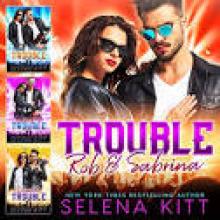 Trouble: Rob & Sabrina: Boxed Set
Trouble: Rob & Sabrina: Boxed Set Trouble Brewing
Trouble Brewing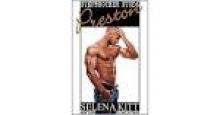 Stepbrother Studs: Preston
Stepbrother Studs: Preston Motorbunny Club
Motorbunny Club Aladdin (New Modern Wicked Fairy Tales)
Aladdin (New Modern Wicked Fairy Tales) Double Trouble
Double Trouble Trouble: Tyler and Katie
Trouble: Tyler and Katie Pied Piper (Modern Wicked Fairy Tales Book 14)
Pied Piper (Modern Wicked Fairy Tales Book 14) Jack and the Beanstalk (Modern Wicked Fairy Tales Book 13)
Jack and the Beanstalk (Modern Wicked Fairy Tales Book 13) Worth the Trouble
Worth the Trouble Big Dick
Big Dick Little Brats Kayla: Forbidden Taboo Erotica
Little Brats Kayla: Forbidden Taboo Erotica Stepbrother Studs: Sean
Stepbrother Studs: Sean Little Brats: Eva: Forbidden Taboo Erotica
Little Brats: Eva: Forbidden Taboo Erotica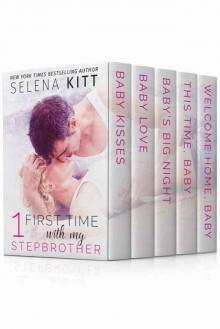 First Time With My Stepbrother Boxed Set: A Stepbrother Romance Bundle (First Time With My Stepbrother Boxed Sets Book 1)
First Time With My Stepbrother Boxed Set: A Stepbrother Romance Bundle (First Time With My Stepbrother Boxed Sets Book 1)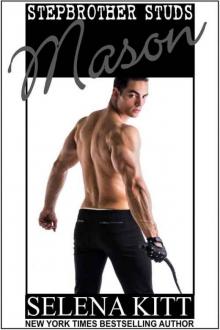 Stepbrother Studs Mason: A Stepbrother Romance
Stepbrother Studs Mason: A Stepbrother Romance What to Read After FSOG: The Gemstone Collection (WTRAFSOG Book 4)
What to Read After FSOG: The Gemstone Collection (WTRAFSOG Book 4) Stepbrother Studs: Tristan
Stepbrother Studs: Tristan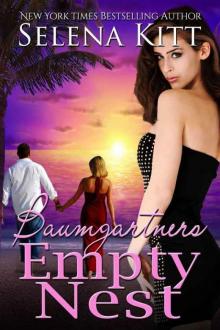 Baumgartners Empty Nest (The Baumgartners)
Baumgartners Empty Nest (The Baumgartners)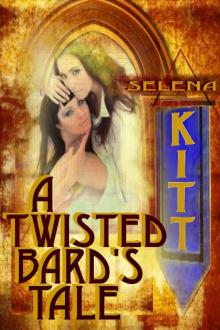 A Twisted Bard's Tale
A Twisted Bard's Tale Daddy's Favorites: Anna
Daddy's Favorites: Anna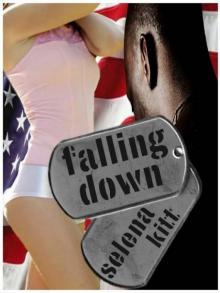 Falling Down
Falling Down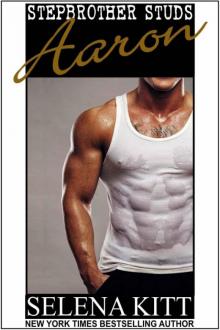 Stepbrother Studs Aaron
Stepbrother Studs Aaron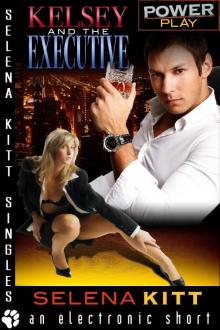 Power Play: Kelsey and the Executive
Power Play: Kelsey and the Executive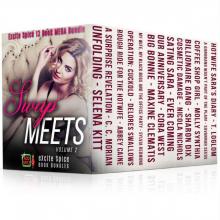 Swap Meets (Volume 2): A 13 Book Excite Spice Hotwife Erotica MEGA Bundle (Excite Spice Boxed Sets)
Swap Meets (Volume 2): A 13 Book Excite Spice Hotwife Erotica MEGA Bundle (Excite Spice Boxed Sets)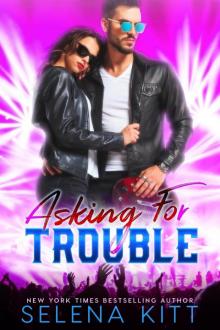 Asking for Trouble
Asking for Trouble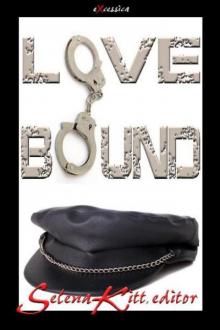 Love Bound
Love Bound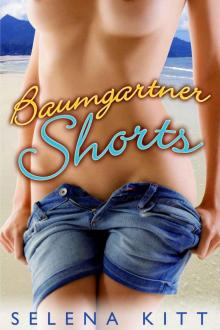 Baumgartner Shorts (erotic erotica menage threesome) (The Baumgartners)
Baumgartner Shorts (erotic erotica menage threesome) (The Baumgartners) Little Brats India: Forbidden Taboo Erotica
Little Brats India: Forbidden Taboo Erotica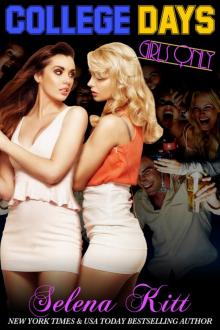 Girls Only: College Days
Girls Only: College Days Girls Only: Pajama Party
Girls Only: Pajama Party Girls Only: Moms' Night Out
Girls Only: Moms' Night Out Little Brats Raina: Taboo Forbidden Erotica
Little Brats Raina: Taboo Forbidden Erotica Highland Wolf Pact Compromising Positions: A Scottish Werewolf Shifter Romance
Highland Wolf Pact Compromising Positions: A Scottish Werewolf Shifter Romance Girls Only: Girl Scout Trip
Girls Only: Girl Scout Trip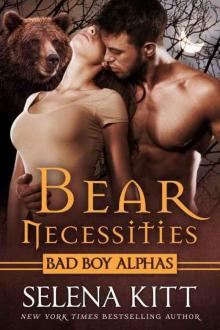 Bear Necessities (Bad Boy Alphas): A Post-Apocalyptic Bear Shifter Romance
Bear Necessities (Bad Boy Alphas): A Post-Apocalyptic Bear Shifter Romance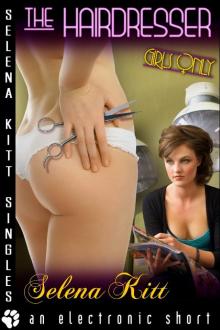 Girls Only: The Hairdresser
Girls Only: The Hairdresser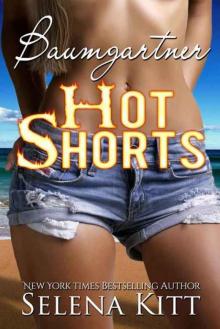 Baumgartner Hot Shorts
Baumgartner Hot Shorts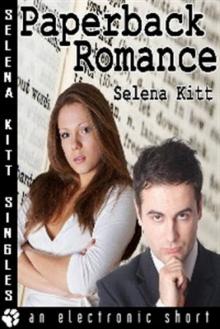 On Cherry Hill
On Cherry Hill Little Brats - Quesa: Forbidden Taboo Erotica
Little Brats - Quesa: Forbidden Taboo Erotica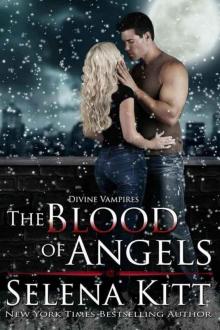 The Blood of Angels: Divine Vampires
The Blood of Angels: Divine Vampires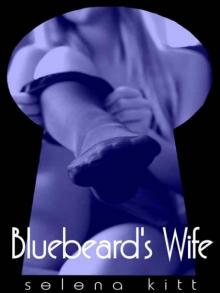 Bluebeard’s Wife
Bluebeard’s Wife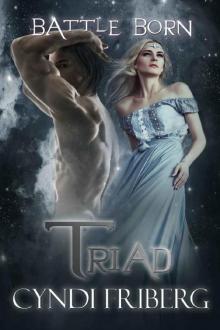 Triad
Triad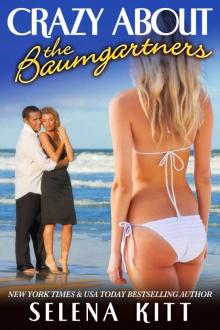 Crazy About the Baumgartners
Crazy About the Baumgartners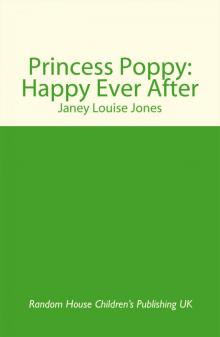 Happy Ever After
Happy Ever After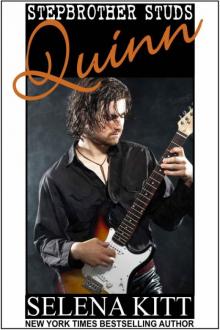 Stepbrother Studs Quinn
Stepbrother Studs Quinn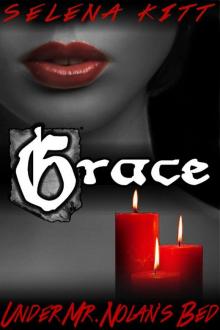 Grace
Grace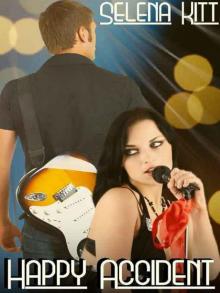 Happy Accident
Happy Accident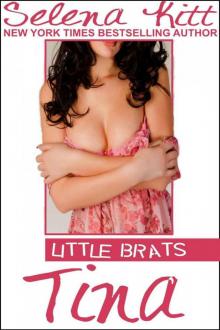 Little Brats: Tina
Little Brats: Tina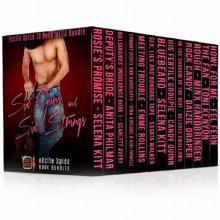 Six Guns and Six Strings: 13 Book Excite Spice Cowboys and Rock Stars Mega Bundle (Excite Spice Boxed Sets)
Six Guns and Six Strings: 13 Book Excite Spice Cowboys and Rock Stars Mega Bundle (Excite Spice Boxed Sets) Science Friction: 15 Book MEGA Sci-Fi Romance Bundle (Excite Spice Boxed Sets)
Science Friction: 15 Book MEGA Sci-Fi Romance Bundle (Excite Spice Boxed Sets)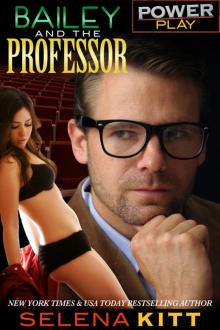 Power Play: Bailey and the Professor
Power Play: Bailey and the Professor Power Play: Jodie and the Billionaire
Power Play: Jodie and the Billionaire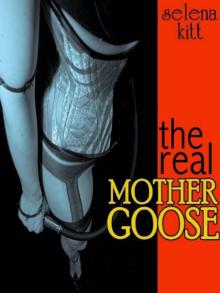 The Real Mother Goose
The Real Mother Goose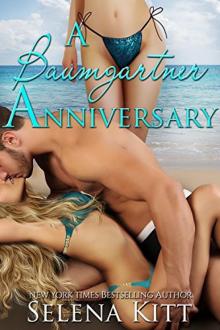 A Baumgartner Anniversary
A Baumgartner Anniversary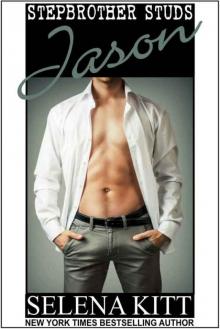 Stepbrother Studs Jason: A Stepbrother Romance
Stepbrother Studs Jason: A Stepbrother Romance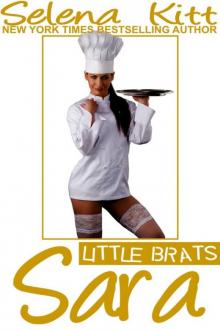 Little Brats Sara: Taboo Forbidden Erotica
Little Brats Sara: Taboo Forbidden Erotica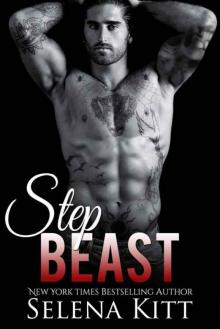 Step Beast
Step Beast Girls Only: New Year's Resolution
Girls Only: New Year's Resolution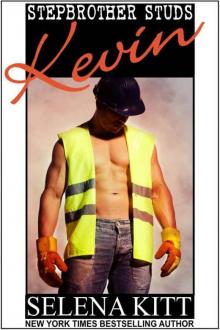 Stepbrother Studs Kevin: A Stepbrother Romance
Stepbrother Studs Kevin: A Stepbrother Romance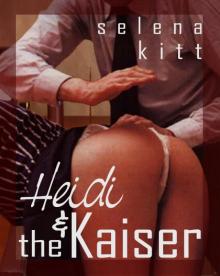 Heidi and the Kaiser
Heidi and the Kaiser Little Brats: Ursula: Taboo Forbidden Erotica
Little Brats: Ursula: Taboo Forbidden Erotica Yank
Yank Girls Only: Pool Party
Girls Only: Pool Party Power Play: The Complete Collection
Power Play: The Complete Collection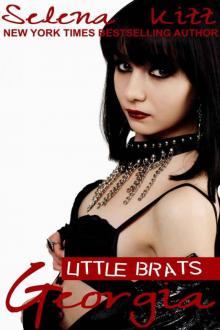 Little Brats: Georgia: Forbidden Taboo Erotica
Little Brats: Georgia: Forbidden Taboo Erotica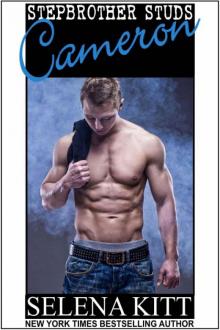 Stepbrother Studs Cameron
Stepbrother Studs Cameron Highland Wolf Pact
Highland Wolf Pact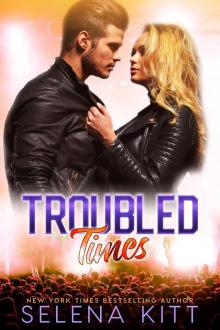 Troubled Times
Troubled Times Stepbrother Studs: Warren: A Stepbrother Romance
Stepbrother Studs: Warren: A Stepbrother Romance Girls Only: Sybian Sorority
Girls Only: Sybian Sorority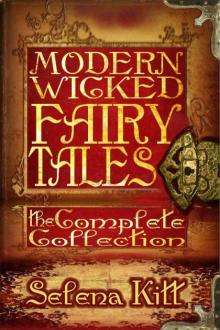 Modern Wicked Fairy Tales: Complete Collection
Modern Wicked Fairy Tales: Complete Collection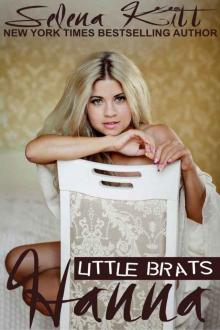 Little Brats: Hanna: Forbidden Taboo Erotica
Little Brats: Hanna: Forbidden Taboo Erotica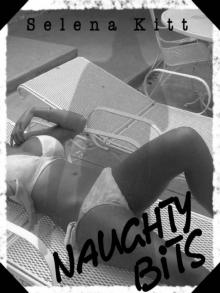 Naughty Bits
Naughty Bits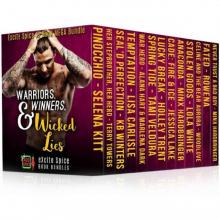 Warriors,Winners & Wicked Lies: 13 Book Excite Spice Military, Sports & Secret Baby Mega Bundle (Excite Spice Boxed Sets)
Warriors,Winners & Wicked Lies: 13 Book Excite Spice Military, Sports & Secret Baby Mega Bundle (Excite Spice Boxed Sets) Little Brats: Taboo A-Z Volume 1: (Forbidden Taboo Erotica) (Little Brats Boxed Sets)
Little Brats: Taboo A-Z Volume 1: (Forbidden Taboo Erotica) (Little Brats Boxed Sets)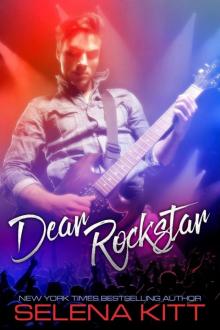 Dear Rockstar Apple
Dear Rockstar Apple Little Brats: Fiona: Forbidden Taboo Erotica
Little Brats: Fiona: Forbidden Taboo Erotica Stepbrother Studs Evan
Stepbrother Studs Evan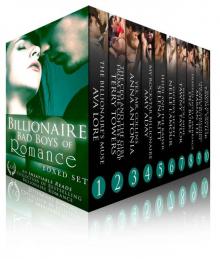 Billionaire Bad Boys of Romance Boxed Set (10 Book Bundle)
Billionaire Bad Boys of Romance Boxed Set (10 Book Bundle)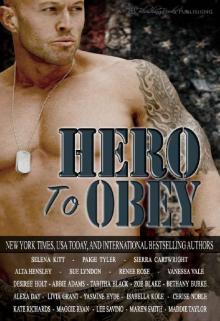 Hero to Obey: Twenty-two Naughty Military Romance Stories
Hero to Obey: Twenty-two Naughty Military Romance Stories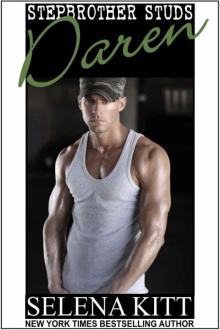 Stepbrother Studs Daren
Stepbrother Studs Daren Once Upon A Dragon
Once Upon A Dragon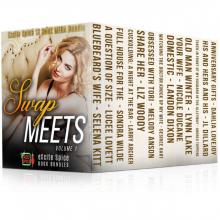 Swap Meets (Volume 1): A 13 Book Excite Spice Hotwife MEGA Bundle (Excite Spice Boxed Sets)
Swap Meets (Volume 1): A 13 Book Excite Spice Hotwife MEGA Bundle (Excite Spice Boxed Sets)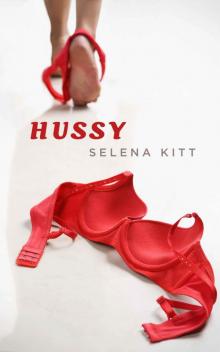 Hussy (New Adult Interracial Romance)
Hussy (New Adult Interracial Romance) In The Barn
In The Barn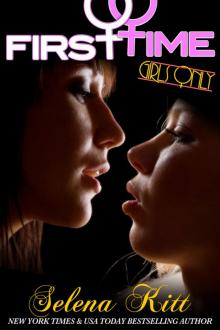 Girls Only: First Time
Girls Only: First Time Stepbrother Studs_Zayn
Stepbrother Studs_Zayn A Baumgartner Christmas
A Baumgartner Christmas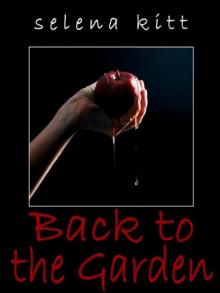 Back to the Garden
Back to the Garden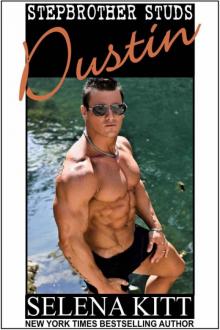 Stepbrother Studs Dustin
Stepbrother Studs Dustin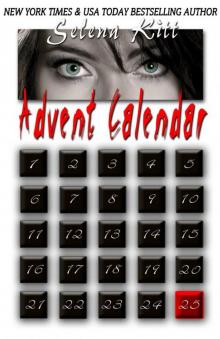 Advent Calendar (An Erotic / Erotica Paranormal Tale)
Advent Calendar (An Erotic / Erotica Paranormal Tale) Emily and the Priest
Emily and the Priest Little Brats Jenna: Forbidden Taboo Erotica
Little Brats Jenna: Forbidden Taboo Erotica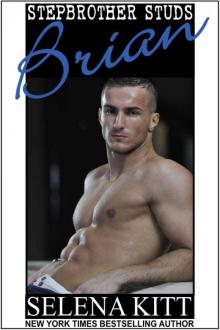 Stepbrother Studs Brian
Stepbrother Studs Brian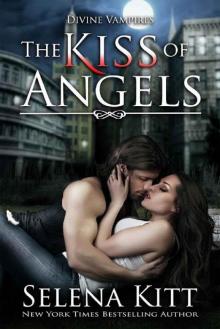 The Kiss of Angels (Divine Vampires Book 2)
The Kiss of Angels (Divine Vampires Book 2)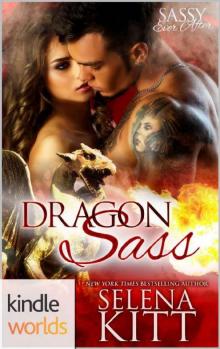 Sassy Ever After: Dragon Sass (Kindle Worlds Novella)
Sassy Ever After: Dragon Sass (Kindle Worlds Novella)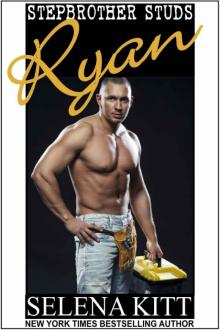 Stepbrother Studs Ryan
Stepbrother Studs Ryan Stepbrothers Undone: 15 Book Hot Erotic Stepbrother Romance Bundle (Excite Spice Boxed Sets)
Stepbrothers Undone: 15 Book Hot Erotic Stepbrother Romance Bundle (Excite Spice Boxed Sets) Stepbrother Studs Finn
Stepbrother Studs Finn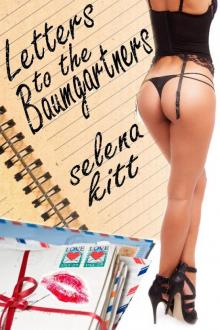 Letters to the Baumgarters
Letters to the Baumgarters Stepbrother Studs Ian: A Stepbrother Romance
Stepbrother Studs Ian: A Stepbrother Romance Little Brats Paula: Forbidden Taboo Erotica
Little Brats Paula: Forbidden Taboo Erotica Christmas Stalking
Christmas Stalking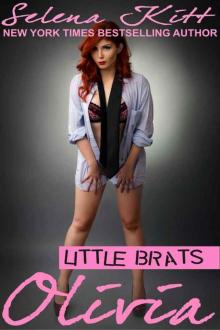 Little Brats: Olivia: Forbidden Taboo Erotica
Little Brats: Olivia: Forbidden Taboo Erotica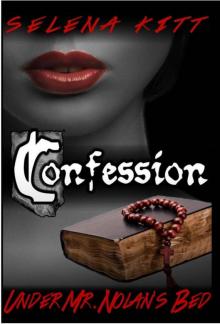 Confessions
Confessions Highland Wolf Pact: Blood Reign: A Scottish Werewolf Shifter Romance
Highland Wolf Pact: Blood Reign: A Scottish Werewolf Shifter Romance Power Play: Katie and the Dom
Power Play: Katie and the Dom Nolan Trilogy
Nolan Trilogy